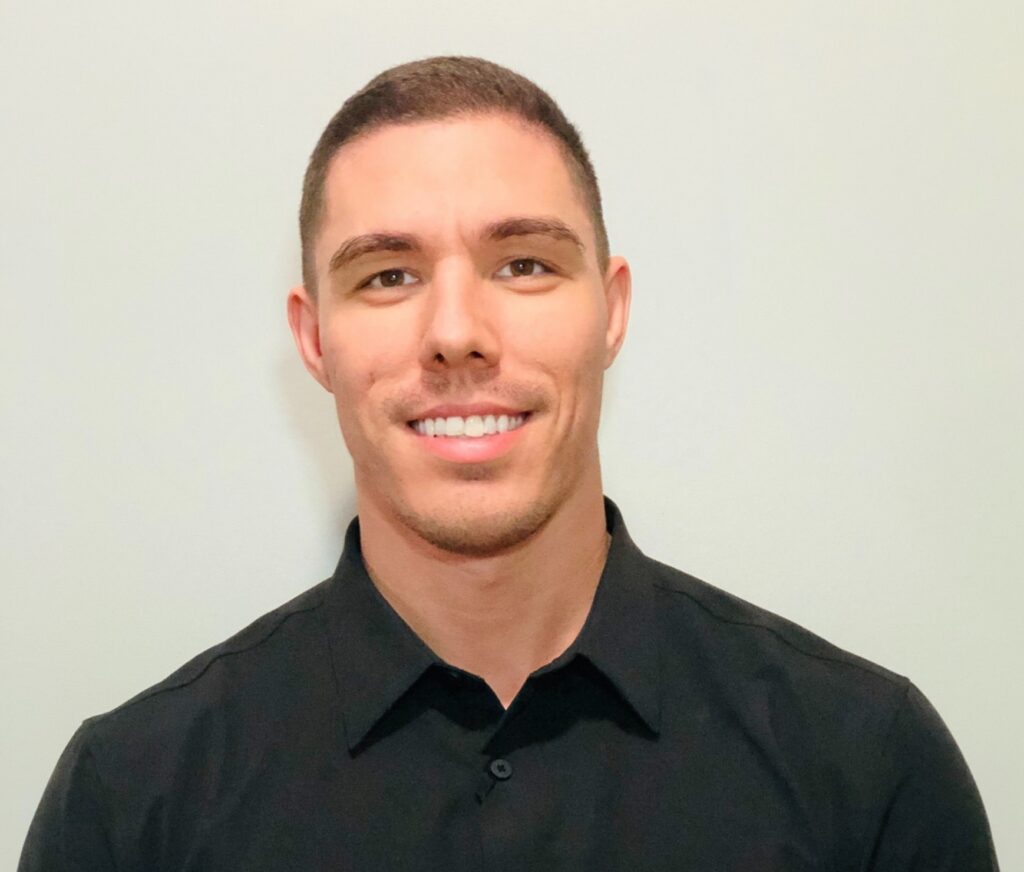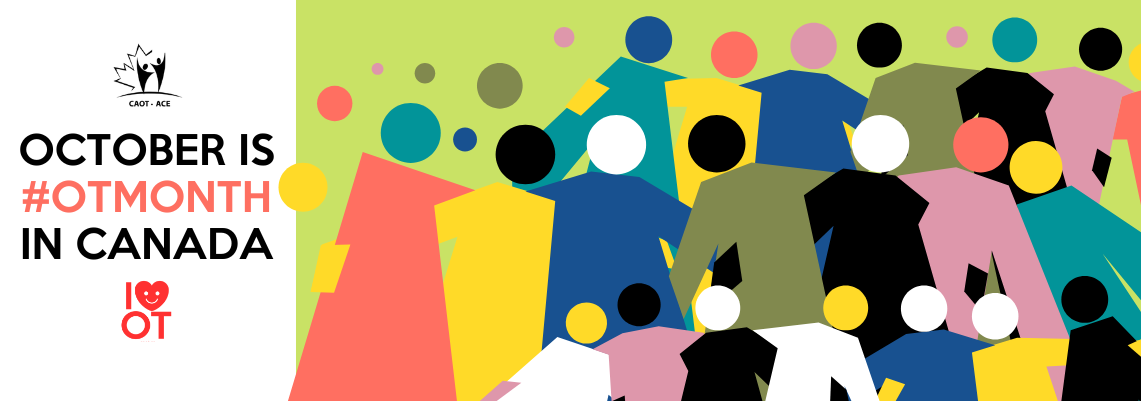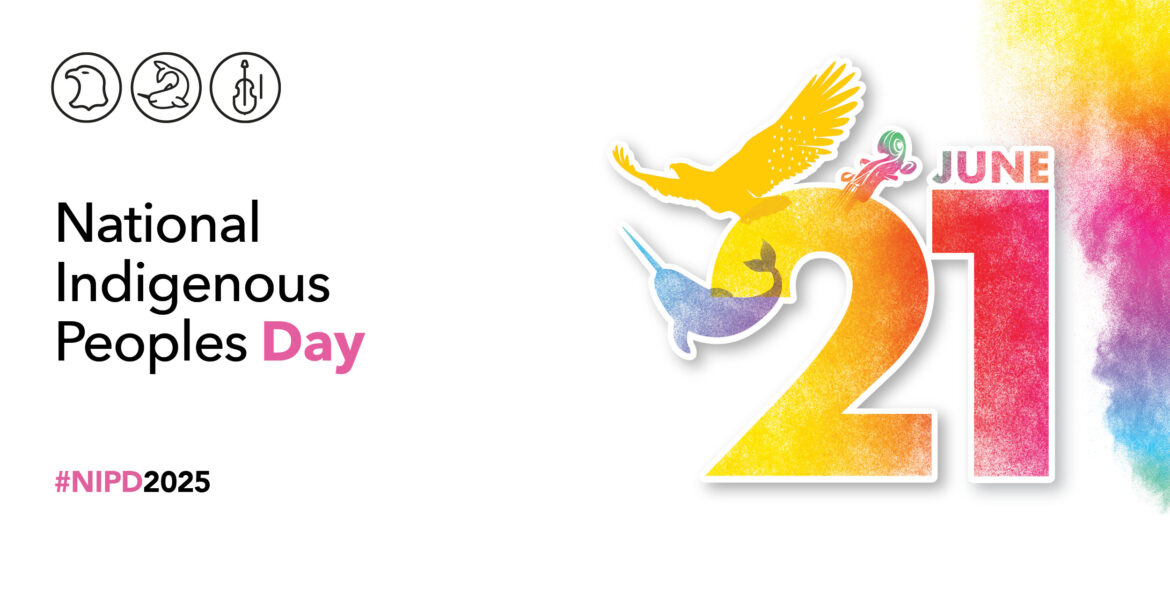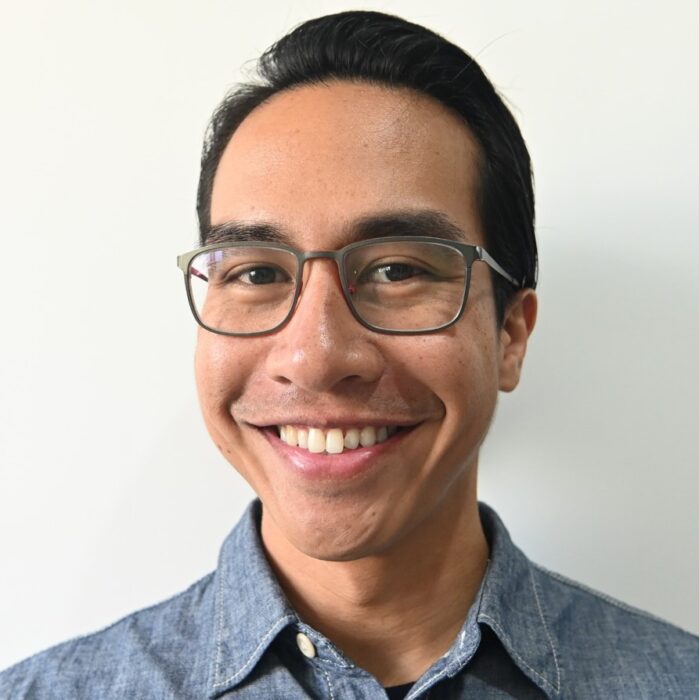Welcoming Nufar Berko Gabay to OT Works!
We are delighted to welcome Nufar Berko Gabay to our team!
Nufar joined us in September 2025 and brings a strong passion for supporting individuals with mental health challenges and working with older adults.
Originally from Richmond, Nufar completed her undergraduate degree in Human Kinetics at UBC Okanagan in Kelowna. She values a collaborative approach to care and enjoys working closely with clients to support their personal goals and recovery journeys.
Before becoming an Occupational Therapist, Nufar worked as a health coach, where she specialized in helping individuals with type 2 diabetes make meaningful, sustainable changes. She has a particular interest in mental health and has completed additional training in Cognitive Behavioural Therapy (CBT), Dialectical Behaviour Therapy (DBT), and Acceptance and Commitment Therapy (ACT).
Through her experience in both public health and private community settings, Nufar has supported individuals living with chronic pain, anxiety, depression, recovery following cardiac events or cancer, concussions and traumatic brain injuries, and complex or mixed diagnoses.
Outside of work, Nufar enjoys spending time with friends, family, and pets. You’ll often find her at the beach, browsing a local market, or exploring the outdoors. Fun fact: during her time living in Kelowna, she conquered her fear of heights by parasailing over Okanagan Lake!
Nufar is based in Metro Vancouver, and offers services to clients through WorkSafeBC, ICBC, private insurance, and self-pay. She is a registered member of the College of Health and Care Professionals of BC.
We’re thrilled to have Nufar join our practice and look forward to the care and compassion she brings to our clients and community.
Get started with an OT
If you or someone you know can benefit from the support of an occupational therapist, reach out to us today!
Email: referrals@ot-works.com
Phone: 604.696.1066 ext. 1000.
OT Works! Holiday Hours
OT Works! will be closed during the holidays.
We will be back to our regular hours on January 02, 2026, when we will be accepting new clients in Vancouver, Metro Vancouver, Fraser Valley, Sea-to-Sky, Sunshine Coast, Victoria, Nanaimo, and the Comox Valley.
| Monday, December 22, 2025 | Open, 9am-5pm |
| Tuesday, December 23, 2025 | Open, 9am-5pm |
| Wednesday, December 24, 2025 | Open, 9am-12pm |
| Thursday, December 25, 2025 | Closed |
| Friday, December 26, 2025 | Closed |
| Monday, December 29, 2025 | Closed |
| Tuesday, December 30, 2025 | Closed |
| Wednesday, December 31, 2025 | Closed |
| Thursday, January 01, 2026 | Closed |
| Friday, January 02, 2026 | Open, 9am-5pm |
Regular business hours resume on January 02.
We wish you a very Happy Holidays and a Joyous New Year!
Get started with an OT
Our therapists at OT Works! are registered and in good standing with the College of Health and Care Professionals of British Columbia (CHCPBC). Our approach is based on current research and evidence-based practice.
If you or someone you know could benefit from occupational therapy, contact us today!
Email: referrals@ot-works.com
Vancouver: 604.696.1066
Victoria: 250.999.8896
OT Works! Community OT Services now available on the Sunshine Coast, BC
OT Works! is excited to announce that we are now providing community-based occupational therapy services to clients living and working on the beautiful Sunshine Coast, BC.
We support individuals recovering from motor vehicle accidents (ICBC rehabilitation), workplace injuries (WorkSafeBC programs), and extended illness or disability with funding from third party insurers and Veterans Affairs. We also support members of the public looking to have their customized needs met promptly.
If you need a mobile occupational therapist on the Sunshine Coast, OT Works! is here to help.
Occupational Therapy Services on the Sunshine Coast
Our community-based therapists provide rehabilitation support in real-life environments, including homes, workplaces, schools, and community locations. By seeing clients where they live and work, we develop meaningful, customized treatment plans that result in recovery and long-term wellness.
On the Sunshine Coast, we are currently serving communities including:
- Gibsons
- Langdale
- Roberts Creek
- Sechelt
- Davis Bay
- Wilson Creek
- Halfmoon Bay
- Madeira Park
- Pender Harbour
- Egmont
- Powell River
Our Community Occupational Therapy Services Include:
- Return-to-Work Planning and Support
- Ergonomic Assessments
- Home Health & Safety Assessments
- Community Reintegration
- Concussion Management
- Treatment for Depression and Anxiety
These services support individuals experiencing pain, cognitive challenges, mental health concerns, mobility limitations, and recovery after injury or illness.
Why Choose OT Works! on the Sunshine Coast?
- Knowledge and experience from someone who lives on the Sunshine Coast
- Evidence-based rehabilitation
- Collaborative communication with clients, insurers, employers, and health teams
- Convenient in-home and workplace visits
- Personalized plans designed for functional recovery
Whether you’re returning to work after an injury, managing symptoms at home, or looking for ways to stay safe and independent, OT Works! can help.
Meet Shae-Lynn Carlson, OT
Shae-Lynn is a compassionate and collaborative occupational therapist living on the Sunshine Coast.
She uses a relationship-focused approach to build trust and rapport, and ultimately facilitate meaningful functional improvements. She has experience supporting individuals with musculoskeletal/orthopaedic injuries, concussion, traumatic brain injury, mental health challenges (anxiety, depression), and mixed diagnoses.
Shae-Lynn has a Master of Occupational Therapy from the University of British Columbia but is thrilled to have returned to a smaller community similar to where she grew up.
She is grateful to collaborate with and serve the Sunshine Coast community.
Connect with us today to get started or to learn more about occupational therapy services on the Sunshine Coast.
Email: referrals@ot-works.com
Phone: 604.696.1066 ext. 1000.
OT in Action: Celebrating Occupational Therapy Month
Every October, OT Works! celebrates Occupational Therapy (OT) Month, recognizing the incredible work of our Occupational Therapists and the meaningful impact they make in the lives of our clients and communities.
This year’s theme, as set by the World Federation of Occupational Therapists (WFOT), is “Occupational Therapy in Action.” The theme reflects the dynamic, hands-on nature of the profession, spotlighting the active role OTs play in enabling people to participate fully in the activities that matter most.
“Occupational therapists actively promote clients’ participation in important activities; they facilitate clients’ re-engagement in a life that is meaningful, connected and rewarding.”
Pamela Russell, Clinical Director, OT Works!
What Does ‘Occupational Therapy in Action’ Mean?
Occupational Therapists (OTs) partner with clients to restore, maintain, and enhance their ability to engage in daily activities—whether at home, work, school, or in the community. Through collaborative assessment and intervention, OTs help people overcome barriers related to injury, illness, disability, or life transitions.
OT in action looks like:
- Supporting someone returning to meaningful employment
- Guiding strategies for mental health and stress management
- Adapting tasks and environments to promote safety and independence
- Building routines that enhance well-being and resilience
By focusing on what individuals do each day, OTs promote purpose, participation, and quality of life.
Lighting Up Canada for World OT Day

On October 27th, landmarks across Canada will once again glow in blue to honour World Occupational Therapy Day and to build awareness of the profession’s important contributions.
In British Columbia, several familiar spaces will join the celebration, including:
- Vancouver’s BC Place Stadium, Science World, Burrard Street Bridge, City Hall and Convention Centre
- Port Moody City Hall
- YVR Airport Control Tower Lights
- Victoria’s Parliament Buildings, Confederation Garden Park Fountain and Waterfall, and Victoria Street Bridge Lighting
- City of Nanaimo Bastion
These lights represent communities coming together to recognize the power and impact of occupational therapy in action.
OT Works! – Active Support for Communities Across BC
At OT Works!, we’re proud to support individuals throughout British Columbia with a diverse team of highly skilled therapists certified by the College of Health and Care Professionals of BC (CHCPBC). Our clinicians bring experience in:
- Physical rehabilitation
- Mental health care
- Brain injury recovery
- Functional capacity evaluation
…and much more.
Serving the Lower Mainland, Fraser Valley, Sunshine Coast, Sea-to-Sky region, and Vancouver Island, our mission remains clear: to help clients act toward their personal and professional goals through individualized, evidence-based, and compassionate care.
Learn More About Occupational Therapy
As we celebrate OT Month and World OT Day, we encourage you to explore resources from these organizations:
- Canadian Association of Occupational Therapy (CAOT)
- World Federation of Occupational Therapists (WFOT)
Happy OT Month!
Grow Your Career with OT Works!
Every occupational therapist wants a place where they can grow, thrive, and feel supported throughout their professional journey. At OT Works! we value growth, knowledge sharing, and individualized support for our occupational therapists. We strive to provide all our colleagues–from student, new grad to experienced therapist–the support and tools they need to create the practice and career they want.
From Student to Confident Future OT: A Placement that Makes a Difference

Meet James Krause, an OT student who recently completed his placement at OT Works!.
Before his OT journey began, he worked as a Kinesiologist and Occupational Therapy Assistant in a private clinic, sparking his curiosity about the OT role in private practice. That curiosity led him to OT Works!.
“When I began looking into potential placements, something about OT Works! really stood out. The website gave off a friendly, welcoming vibe, and the values resonated with me. It was my top choice—and I’m so grateful I had the opportunity to be placed here.”
What made his placement exceptional? A thoughtfully designed experience, tailored to his learning goals.
“My four preceptors were incredibly supportive. I always felt clear on expectations, and they coordinated behind the scenes to ensure consistency in my experience. They genuinely cared about my growth.”
James especially valued the balance between independence and guidance.
“As a student nearing graduation, I was encouraged to take initiative and apply my clinical reasoning. At the same time, I always had someone to turn to for feedback, resources, or direct support.”
That feedback, delivered in a constructive and compassionate way, made a lasting impact:
“One of my preceptors gave detailed feedback after a client session, along with resources to deepen my understanding. It gave me tools I’ll carry with me throughout my career.”
His advice to students considering a placement?
“Come in open and ready to engage. OT Works! provides a supportive, client-centered environment where your goals are genuinely valued. It was one of the most enriching experiences of my training.”
From Placement to Practice: Thriving as a New Grad at OT Works!

Meet Heidi Nygard, one of our full-time therapists, now with two years of experience, who started as a student placement with OT Works!.
Heidi’s journey from student to full-time OT was marked by meaningful mentorship and a strong sense of belonging.
“My placement introduced me to four different therapists, which helped me understand the diversity of the practice and how you can personalize your caseload to fit your interests.”
Transitioning into a full-time role felt seamless thanks to our structured onboarding and mentoring system.
“I had formal mentorship from day one, which was essential. It gave me a safe space to ask clinical questions and navigate the details of contract work. Beyond that, the informal mentorship—just being surrounded by a community that values learning—was invaluable.”
Two years in, her confidence has grown substantially.
“When you’re new, you encounter a lot of firsts. Having experienced colleagues to review treatment plans and reports helped reinforce that I was on the right path. That support built a foundation for skill development and creativity.”
And as her skills evolve, so do her opportunities to follow her passions.
“I love that I get to choose the cases I work on. It lets me lean into what excites me and stretch myself in areas I want to grow. There’s also a strong culture of reflection—we’re encouraged to think about what brings us joy and what we want our careers to look like.”
What excites her most about continuing to grow at OT Works?
“The community, the mentorship, and the values at the heart of OT Works! align perfectly with how I want to do my work. That’s what makes me excited to grow my career here.”
A Decade of Growth and Giving Back: Mentorship in Private Practice

Meet Randy McVeigh, an experienced OT, mentor and leader, who joined OT Works! as a new grad.
Starting in private practice as a new grad was challenging, but the support Randy found at OT Works! made all the difference.
“There was so much to learn—about conditions, private payers, and managing your own caseload. But I loved the independence and flexibility. And most importantly, the leadership team was always there for me. That support made me stay.”
Over the past decade, Randy has continued to grow as a clinician and leader.
“There’s always more to learn in private practice. I’ve pursued continuing education, attended conferences, and taken on leadership roles, like delivering in-services and joining our quality assurance team.”
Now, Randy’s paying it forward by mentoring the next generation of OTs.
“Being a preceptor is incredibly rewarding. I remember how much I appreciated my preceptors, and now I get to do the same. It’s also helped me realize just how far I’ve come.”
Randy’s proud of how OT Works! structures placements to make mentorship possible—even in the time-sensitive world of private practice.
“Pamela, our Clinical Director, makes sure we share the work as a team. That flexibility has made it possible for me to be a preceptor and give students a meaningful experience.”
His approach to mentoring emphasizes both clinical knowledge and professional adaptability.
“I help students get comfortable with private practice interventions and teach them to communicate effectively with clients, funders, and employers. Engagement is key—so I encourage them to be curious, creative, and listen deeply to each client’s story.”
Why does Randy recommend OT Works! for students and professionals alike?
“The culture here is one of kindness, respect, and ongoing learning. The variety of clients keeps things interesting, and the expertise across the team means you’re always growing. OT Works! is a wonderful company to work for.”
Grow With Us
Whether you’re a student exploring private practice, a new grad looking for your first role, or a seasoned therapist seeking a team that values your leadership— OT Works! has a place for you.
Our commitment to personalized support, professional development, and a strong team culture ensures that every therapist can build a meaningful and rewarding career.
Grow your career with us —we’d love to hear from you! We want to know about your experiences and why you love being an OT.
Honouring National Indigenous Peoples Day: Reflecting on Healing, Culture, and Connection
June 21st marks National Indigenous Peoples Day — a time to recognize and celebrate the diverse cultures, contributions, and histories of First Nations, Inuit, and Métis peoples across Canada. As an occupational therapy company dedicated to supporting holistic well-being, OT Works! believes this day is also an opportunity to reflect on the intersections of health, healing, and cultural understanding.
A Time for Learning and Listening
For many Indigenous communities, health is not only physical, but deeply connected to spiritual, emotional, and cultural well-being. Traditional practices, community bonds, connection to the land, and intergenerational knowledge are all vital parts of healing. As occupational therapists, recognizing these cultural frameworks is essential in providing respectful, client-centred care.
At its heart, occupational therapy is about enabling individuals to engage in the meaningful activities of daily life. For many Indigenous clients, those activities are intertwined with cultural practices. Storytelling, music, hunting, beadwork, traditional ceremonies, and land-based activities are not only occupations but sources of resilience and strength.
Reflecting on Our Role in Reconciliation
National Indigenous Peoples Day also serves as a reminder of the ongoing impacts of colonization and systemic inequities in health care. Occupational therapists—and all health professionals—have a responsibility to engage in reconciliation by:
- Acknowledging history: including the legacy of residential schools, forced relocations, and cultural suppression.
- Challenging biases: through continued education and open dialogue.
- Supporting culturally safe care: by working in partnership with Indigenous clients and communities.
We are committed to learning from Indigenous voices and incorporating Indigenous knowledge into our understanding of wellness. We recognize that this work is ongoing—and we are dedicated to walking that path with humility and care.
Ways to Honour the Day
Whether you are an OT, a client, or someone seeking to grow in understanding, here are some meaningful ways to honour National Indigenous Peoples Day:
- Attend a local Indigenous event or celebration.
- Learn about the land you live and work on—whose traditional territory it is, and what treaties apply.
- Support Indigenous-owned businesses, artists, and authors.
- Read the Truth and Reconciliation Commission’s Calls to Action, especially those related to health care.
- Reflect on how your work and daily life can support equity and respect for Indigenous rights and traditions.
Learn More and Get Inspired
Unmasking PTSD: How Occupational Therapy Supports Healing
Living with a mental health or substance use challenge is hard, and trying to hide it is even harder.
Mental Health Week 2025 invites us all to “Unmask Mental Health.” It’s a call to peel back the masks we hide behind—especially when it comes to conditions like Post-Traumatic Stress Disorder (PTSD).
PTSD can affect anyone who has experienced trauma, and its impact is personal and often invisible. From disrupted sleep to difficulty maintaining relationships or routines, the effects of PTSD can ripple through every aspect of daily life. Occupational Therapists (OTs) are trained to help individuals navigate these challenges, supporting them on their journey to recovery and renewed independence.
Understanding PTSD and the Mask We Wear
PTSD doesn’t always look how we expect it to. It can present in many ways, including:
- Flashbacks or intrusive memories
- Heightened anxiety or hypervigilance
- Avoidance of certain people, places, or activities
- Emotional numbness or difficulty concentrating
Because these symptoms can be difficult to explain—or even recognize—many people “mask” their struggles to maintain a sense of normalcy. Stigma, shame, or fear of being misunderstood can lead to avoidance behaviors and self-stigma, making healing even more challenging.
Unmasking these hidden struggles is a powerful first step toward healing. By acknowledging our mental health challenges, we can access the support we need to recover.
How Occupational Therapy Helps with PTSD
1. Creating a Safe Space for Unmasking
Occupational Therapists provide a compassionate, judgment-free environment where clients can begin to unpack their experiences. OTs help individuals build self-awareness and learn emotional regulation techniques that reduce overwhelm and increase a sense of control.
2. Helping with Daily Routines and Independence
PTSD can make even simple daily tasks feel overwhelming. OTs support clients in:
- Identifying and managing triggers during everyday activities
- Returning to previously avoided daily activities
- Rebuilding routines that conserve energy and reduce stress
- Using pacing and prioritization techniques to avoid burnout
- Implementing gradual exposure strategies in safe, real-world settings to rebuild confidence
3. Mind-Body Connection: Regaining Control
Healing from trauma involves more than just talking. Occupational Therapists use sensory-based interventions, such as grounding exercises, to help clients stay present. Mindfulness strategies and breathing techniques can reduce anxiety and reconnect clients with their bodies in a safe, empowering way.
4. Supporting Work & Social Life
Whether returning to work, school, or social activities, PTSD can create barriers that feel insurmountable. OTs provide:
- Tailored strategies for reintegrating into the workplace
- Techniques to reduce social isolation
- Support in accessing community resources to build a strong, supportive network
Breaking the Stigma: How You Can Help
Unmasking mental health is a collective effort. You can support this movement by:
- Starting open conversations about PTSD and mental wellness
- Encouraging loved ones to seek professional help when needed
- Offering support without judgment—sometimes just listening can make a big difference
This Mental Health Week let’s challenge ourselves to unmask PTSD and other hidden mental health conditions. With the right support, healing is possible. Occupational Therapists are here to walk alongside individuals as they rebuild their lives, routines, and sense of self.
If you or someone you know is struggling, don’t wait. Reach out for help today.
Resources
- Crisis Support: Talk Suicide Canada (1-833-456-4566)
Contact Us
Looking for support from an Occupational Therapist? Our team is here to help.
Email: referrals@ot-works.com
Phone: 604.696.1066 ext. 1000.
Personal Care Assistance (PCA) Assessments and ICBC: Getting the Support You Need after a Motor-Vehicle Accident
Car accident injuries can make even simple, daily activities difficult. You may need help with housekeeping, meal preparation or personal tasks like bathing or getting dressed. Under ICBC’s Enhanced Care you may be eligible for a personal care assistance (PCA) benefit. A Personal Care Assistance (PCA) assessment helps ICBC determine your needs and eligibility for personal care assistance. The PCA assessment and report helps you get the right level of support for recovery and independence.
What is a PCA Assessment?
A Personal Care Assistance (PCA) assessment is conducted by a qualified Occupational Therapist to looks at a person’s functional abilities and identifies any limitations with daily tasks due to accident-related injuries. The results of the assessment help ICBC decide if they will fund personal care services.
Importance of a PCA
For individuals recovering from injuries, a PCA assessment is often the only way to access the support they need. Without it, many people struggle with essential daily activities, slowing their recovery and impacting their quality of life. The assessment helps you get the right level of additional support, whether from professional caregiver assistants or from compensated family members.
Occupational Therapists Conduct PCAs
Occupational therapists (OTs) have the needed experience and training to assess a person’s ability to perform daily activities. Through a PCA assessment, an OT looks at accident-related limitations and makes recommendations for the level and type of care required. The OT gathers information through an in-home visit, documenting the results in the PCA Assessment Report and Scoring Sheet, which are then submitted to ICBC for review and benefit determination.
The PCA Assessment Process with an OT
What Happens During the Assessment?
The OT will do the PCA assessment in the client’s home to assess their ability to manage daily tasks. The occupational therapist will:
- Review medical history and current challenges.
- Observe how the injury affects self-care, mobility, and household activities.
- Identify specific areas where you need help.
- Discuss potential solutions and support options.
The PCA Report
Following the assessment, the OT provides a detailed report to ICBC outlining:
- The extent of the individual’s functional limitations.
- The recommended type and duration of personal care assistance.
- Suggestions for professional caregiving services or compensation for family caregivers.
ICBC uses this report to determine what level of support they will approve for funding.
How to Get a PCA Assessment
ICBC May Fund This Assessment
If you require assistance with daily tasks due to accident-related injuries, ICBC may cover the cost of a PCA assessment. However, ICBC must approve funding before you start working with an OT and make a determination of benefit before authorizing any personal care assistance.
Steps to Get Approval
- Contact Your ICBC Adjuster – Explain your difficulties with daily tasks and request a PCA assessment by an occupational therapist.
- Get a Referral – Your doctor, physiotherapist, or other healthcare provider may recommend an PCA assessment to support your request.
- Complete a PCA Assessment with an Occupational Therapist – Once approved, an OT will conduct the assessment and submit their findings to ICBC.
Get Started Today
If you or a loved one are struggling with daily activities after a car accident, a PCA assessment can help secure the support you need. At OT Works! our experienced occupational therapists provide thorough evaluations to help you receive the right level of care and support for your recovery.
Contact us today to start your recovery journey.
Email: referrals@ot-works.com
Vancouver: 604.696.1066
Victoria: 250.999.8896
Welcoming Theo Ortega to OT Works!
We are thrilled to introduce Theo Ortega, the newest member of the OT Works! team. Joining us in January 2025, Theo brings a wealth of experience, cultural insight, and dedication to helping clients regain their independence and engage in the activities that matter most.
Theo is passionate about delivering personalized care and fostering collaboration with clients. His approach focuses on empowering individuals to overcome challenges and rediscover their confidence.
Having traveled extensively across North and South America, Europe, and Asia, Theo has cultivated a deep cultural awareness that informs his ability to tailor his support to each client’s unique needs. He has worked with diverse populations in Canada, the United States, and the Netherlands, focusing on a wide range of conditions, including:
- Musculoskeletal and orthopedic injuries
- Oncology-related conditions
- Chronic pain
- Concussions and traumatic brain injuries
- Complex diagnoses
Theo spent much of his career practicing in Toronto, Ontario, before expanding his practice to the United States, where he focused on oncology rehabilitation and lymphedema therapy in Orlando, Florida. Additionally, his service in the Canadian Armed Forces gives him a distinctive perspective on the needs of military personnel and veterans.
Based in Victoria, Theo offers services to clients through WorkSafeBC, ICBC, private insurance, and self-pay. He is a registered member of the College of Health and Care Professionals of BC.
We are excited to have Theo join OT Works! and are confident that his skills and passion will benefit our clients and community!
Get started with an OT
If you or someone you know can benefit from the support of an occupational therapist, reach out to us today!
Email: referrals@ot-works.com
Phone: 604.696.1066 ext. 1000.
Occupational Therapists Provide Wheelchair Assessments for better quality of life
A properly fitted wheelchair, carefully chosen to meet you for your short and long-term needs can significantly increase your function and improve your quality of life. A comprehensive wheelchair and seating assessment, conducted by an Occupational Therapist (OT), is essential to getting the right fit and the right wheelchair for you.
What is a Wheelchair Assessment?
A wheelchair assessment is a thorough evaluation to determine the most suitable wheelchair and seating system for your specific current, and potential future needs. Performed by a trained and qualified occupational therapist, this assessment ensures that the wheelchair selection will provide the necessary support, comfort, and functionality you need, and that the chair can move safely and comfortably within and between environments.
Why is a Wheelchair Assessment Important?
A wheelchair assessment addresses your unique needs. It measures your upper and lower extremity strength, ability to propel/drive the chair, postural endurance, sitting balance, physical and environmental barriers, cognition, and your unique activities and goals.
Without this assessment, you may end up with a wheelchair that is uncomfortable, difficult to maneuver, or inadequate for your daily activities, leading to decreased independence and potential health risks. A well-fitted wheelchair enhances mobility, promotes independence, and supports overall health.
Who Needs a Wheelchair Assessment?
Anyone who needs a wheelchair, whether for temporarily or long-term use, benefits from a wheelchair assessment. If it is your first chair or you are looking for a replacement chair because of your changing needs, a wheelchair assessment can help you be more comfortable and more functional.
A wheelchair assessment by a regulated professional is also necessary for anyone requiring documentation to acquire funding for a wheelchair. OTs can prepare funding justification letters for extended health benefits and insurance companies that often require an OT assessment prior to funding a wheelchair.
What Happens During an OT Wheelchair Assessment?
- Interview: The process begins with an in-depth conversation about your daily routines, health history, and specific needs and goals.
- Environmental Considerations: The assessment considers the environments where you will use the wheelchair, such as the home, workplace, or community settings, and whether it will be needed outside or inside, on transit or while driving.
- Physical Examination: The OT completes a screen of your physical, functional abilities and identifies any safety concerns.
- Measurements: The OT takes precise measurements to ensure the wheelchair will fit and support your body.
- Trial and Fitting: You may trial various wheelchair options to find the best fit, and adjustments are made as necessary.
- Training and Education: Once the ideal wheelchair system is selected, the OT may provide you and/or your caregivers with education and training on its use, maintenance, and safety.
What OTs Assess in a Wheelchair Assessment
OTs consider a variety of factors during the assessment, including:
- Medical Profile: Awareness of a specific diagnosis or prognosis relevant to the wheelchair need, and whether the condition is temporary, stable or progressive in nature.
- Posture and Seating: Ensuring proper alignment to prevent discomfort and long-term health issues, as well as to facilitate functional goals.
- Mobility Needs: Determining the ability to move, self-propel and drive or level of assistance required for effective mobility.
- Daily Activities: Understanding how you will use the wheelchair in your everyday life.
- Environment: Understanding various settings your wheelchair will be used in.
- Safety Concerns: Ensuring the wheelchair is safe for your specific circumstances.
Collaboration
Furthermore, OTs often collaborate with other healthcare professionals, such as physiotherapists, doctors, physiatrists and rehabilitation specialists, to ensure a comprehensive and thorough understanding of your medical situation. They also collaborate with medical equipment vendors, in order to recommend the most suitable wheelchair system, considering the most up-to-date equipment available. Finally, they collaborate with you and your family members, if you are in agreement. This collaborative approach ensures that all aspects of your health and lifestyle are considered, and the best solution is identified.
Examples of Recommended Equipment
- Standard Manual Wheelchair: A manual wheelchair may be considered for the most active users with the ability to self-propel and sit for longer periods of time. They can also be designed to be attendant-propelled, in which case the sizing needs of the individual most likely to be pushing it will also be considered. Features like specialized seating and power add-on can also be considered, to offer greater support and independence.
- Tilt-in-Space Wheelchair: This type of equipment may be considered for individuals who have more complex postural needs or require greater pressure redistribution, as these wheelchairs enable changes of seating angle and pressure redistribution while maintaining support and reducing shearing effects on the skin. This type of wheelchair may also help improve the line of vision and increase the sitting tolerance.
- Power Wheelchair: A motorized wheelchair may be recommended for individuals with limited body strength, postural and/or mobility endurance. The OT will consider the user’s functional/mobility goals, ability to control the wheelchair while navigating environments and the need for additional component features, such as power tilt or recline functions.
- Custom Seating: For individuals with more specific positioning/seating needs or complex medical history, a custom seating assessment addresses areas of the wheelchair user’s needs which may fall outside of the typical user profile, such as a backrest which requires custom molding and hip guides to maintain posture or a customized headrest shape and position to accommodate a fixed neck angle. Customization requires the OT to work closely with a medical equipment vendor skilled in wheelchair customizations to ensure that the final seating system is tailored to the user’s unique requirements and long-term needs.
As equipment becomes more complex, the lengthier and more detailed the assessment becomes. Longer assessments for complex needs are more costly than short assessments for simple needs.
Summary
A wheelchair assessment may require multiple visits to ensure the best fit and functionality. Every individual person’s situation is unique, and there is no “one size fits all” approach to selecting a wheelchair system.
The skills of an Occupational Therapist and a personalized, comprehensive assessment help ensure that the investment in a wheelchair meets your specific needs. Finding the right chair that fits will lead to your comfortable participation in the things you want to do and help get you to places you want to go.
Our Team
Our OT Works! team of OTs have experience in wheelchair assessments. We provide personalized, comprehensive evaluations that result in meaningful outcomes for our clients.
Contact Us Today
If you or someone you know need a wheelchair assessment, contact us today.
Email: referrals@ot-works.com
Vancouver: 604.696.1066
Victoria: 250.999.8896










